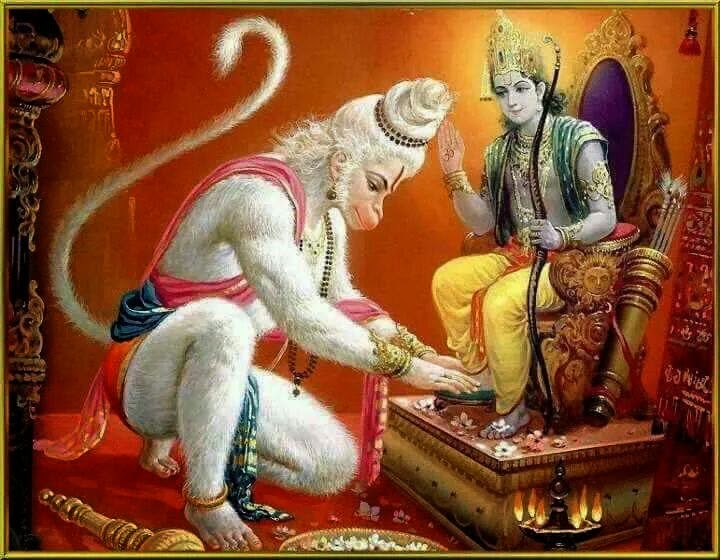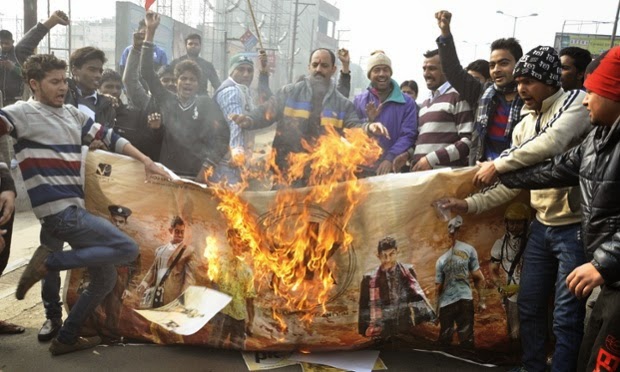Vishwa Hindu Parishad (VHP) movement in Fiji: A foreign flower
on local soil? Some questions for VHP
Thakur
Ranjit Singh
You drive south from Ba town towards Rarawai into dusty,
windy and bumby Vunisamaloa / Vaqia Road. The second driveway up the hill leads
to the house of Medndi Khan, A Lahori Punjabi Muslim, who has been our village
Aaja (grandfather) and his children have been our “chachha” (uncle). You drive
down the third driveway to Bansi-Nivas (Bansi was my Rajasthani grandfather)
and the first house is my home.
Scattered around the locality is our extended families and
further on other Muslin community, who all have been like our relatives on
bonds of Girmit when all our Girmitiyas came from India in the era when there
was no partition, or the current Hindu-Muslim tension you have in India. The
life in village has been colourful in Diwali and Holi, and feasting came with
either Eid or a Muslim wedding, with authentic goat plau. Such was the networking, love and understanding where we all existed
peacefully, bonded on Girmit ‘Jahajibhai relationship where all went through
the same Girmit I indenture) history and adversity.
As a secondary school student I used to go to Sunday
School at Gospel Chapel with Ashley Howan, people in Yalalevu , Ba may know his
double storey house near railway crossing. He was a nice Christian priest who
encouraged us to learn about Christ and I with other Hindu classmates, used to
attend Sunday Schools and even attended their Easter Camp in Sabeto, Nadi. Today I am richer by knowing about Christ.
So was peaceful co-existence of different religions.
But will this last, with encroachment of a nationalist political
Hindu organisation, a movement, which took root in a conflict situation in
India, completely alien to our co-existence in Fiji? And a movement (not a
religion) that is known in India for its anti-stance and hate-attitude towards
Islam, Christianity and other minority religions?
Sanatan Pratinidhi Sabha of Fiji, Fiji Muslim League, Arya
Samaj, Then India Sanmargya Ikkam (TISI), Andhra Sangam, Fiji Council of Churches, Fiji Sikh Society,
Kabir Panth, Sai organisation, Gujarat Samaj and other home-grown Fiji ethnic
and religious organisations, germinated from graves, dust, blood and sweat of
our Girmitiya forebears. All these organisations co-existed with respect for
each other, sharing the same history and understanding of our transformation
from slavery to independence and going through political instability.
However, a new “alien” phenomenon has started encroaching,
which I suspect could add strain to hitherto peaceful co-existence, considering
its historical inception and objectives. And that phenomenon is VHP- or Vishwa Hindu Parishad.
Wikipedia defines Vishwa Hindu Parishad as World Hindu
Council, abbreviated VHP. It is an
Indian right-wing Hindu
nationalist non-governmental organization based on the ideology of Hindutva. It was founded in 1964 with its main objective “to
organise, consolidate the Hindu society and to serve, protect the Hindu
Dharma."
The VHP belongs to the Sangh
Parivar, an umbrella of Hindu
nationalist organisations led by the
Rashtriya Swayamsevak Sangh (RSS). It has been involved in social
service projects in India such
as construction and renovation of Hindu
temples, issues of cow slaughter, religious conversion, the Ayodhya
dispute and its role in the Babri Masjid demolition.
If one appreciates India’s history since its partition
and independence, one would appreciate VHP as a protector of Hinduism in India,
and some even feel it is justified in some strong stance it has been taking in
response to threat of violence and terrorism by Islamic, communist or other
anti-Hindu groups. Hence, historically, it served commendably to protect
Hinduism from external threats and still do. Within India, it can justify its
existence. [But in Fiji?]
However, despite that,
there is increasing disquiet about the actions of VHP and its associated
organisation. It has been reportedly linked to violence, persecution of
minority religions, riots and breaking of laws to enforce its type of religious
thinking. Even India’s new PM whose party, BJP is supported by VHP has been
critical of VHP’s obsession with the concept of Hindutva, compared to
secularism which is enshrined in India’s constitution. (And Fiji’s as well)
Hence looking at that scenario where the
birth of VHP was in a conflict situation, much to do with external real and
perceives threat, especially from Islam, Christianity and Communism, we need to
be skeptical of its entry in Fiji which never had religious-based tensions,
conflicts, or even issues. People in Fiji need to ask what relevance has its
brand of fundamentalism is justified in Fiji? Are we under any threat? For
religious purposes, do not we already have ample home-grown organizations?
I raise some issues here
where the leadership of VHP in Fiji and India need to answer civilly and
intelligently, without indulging in name-calling, defamation,
shooting-the-messenger, insults and other of their proven and known traits
which seem miles apart from the teaching of Hinduism and Hindu motto of ‘Vasudhaiv
Kutumbakam (the world is a family)“:
1) Why it
took VHP some fifty years to enter Fiji, especially when we had gone through
our upheavals and are now on some semblance of political stability?
2) If VHP really considered itself as the respectable and
representatives of all Hindus in India, why
did it not come to Fiji to unite various Hindu organizations, or work with them
to promote and enhance Hinduism and perhaps become a sort of umbrella body to
meet peaceful objectives? As Fiji already has multiple-home grown Hindu
organizations for all sectors of the community, what is the need for this
foreign transplant?
3) If VHP really have honorable intentions for Fiji, why did it not work in
cooperation, coordination and consultation with the largest Hindu organisation
in Fiji, Sanatan Pratinidhi Sabha of Fiji or other existing ones? Why did it come in to splinter this august body, set up
by our Girmitiyas? We appreciate there are administrative issues with this
organisation, as so many of them have in India, but is this unceremonious entry
into Fiji suits an organisation which seeks respectability and support from
Hindus? Does
it realise that their introduction into Fiji was a knee-jerk reactions from
some sacked officials of Sanatan who were accused on bringing disrepute to the
organisation and religion? Is that how VHP promotes Hinduism, by supporting
delinquency among youth, to go against the elders and an already –established institution?
4)
Can I equate entry of VHP in Fiji to the introduction of
Mahasang in Fiji, using links with India, an Indian Gujarati lawyer and a
saffron clad monk? [This relates to
divide –and-rule technique employed by AD Patel, aided by the saffron clad Saadhu,
Swami Rudranand, 75 years ago. In 1937, Pundit Ayodya Prasad started Fiji Kisan
Sangh, a union for Indian cane farmers. Then enters a Gujarati lawyer, diluting
the voice of Girmitiya cane farmers with a politically –motivated rival
organisation. This division resulted in dilution of unity of farmers, where the
main beneficiary was CSR Company which could continually exploit farmers in a
divided farmers union.] Is history
repeating itself in Fiji, and VHP has adopted the divide –and- rule strategy
they learnt from the British?
5)
Do not
we have a similar scenario here where some Gujarati and other rich businessmen
are supporting the transplant of saffron-clad people from an alien
organisation? Isn’t the sentiment of VHP Fiji to take “revenge” with Sanatan,
and weaken it? Is not it founded and rooted in vindictiveness? Is that an
honorable objective? If a house is in ruins, should we repair it or burn it? Should not VHP, if it was really interested
in promoting Hinduism, have given a supporting hand to Sanatan, rather than
aiding and abetting its humiliation through a rebel group?
6) All the other peaceful religious objectives of VHP have
been amply served by the existing home-grown organizations in Fiji. What other
objectives have they in mind? Is there
some dissatisfaction with conversion of people to Christianity? Is there any
threats from Islamic terrorism? Do we have threats from Communists? What has
VHP’s inception and initiation in India common to a peaceful Fiji? India
has always kept a hands-off approach to Indo-Fijian problems, and even Indira
Gandhi who visited us in 80 told us that we were Fijians. Our people persevered
and suffered under British, then we had no VHP. Why now? Do we need you? Are
you relevant to Fiji?
 |
| The face of VHP in pushing for Hindutva concept in India. Fiji Hindus need to decide whether they will allow their children to resort to such hard-stance on religion which is foreign to Fiji. |
7) Does VHP
teach common manners to its Executives and Officials on how to talk and conduct
themselves publicly? Do they have words like respect, humility, and common
human decency in their dictionary,
instead of running down people, shooting the messenger and calling them names? [I
am branded a “failed –journalist, a useless ageing self-appointed journalist,
suitable for a toilet cleaner’s job in a business one VHP leaders owns in Fiji]
Is this the brand of Hinduism, culture, youth development and Hindu sentiments
and civilization VHP intends to transplant internationally?
Other questions remain,
but I will stop at this and hope some sane answers are given, without shooting
or threatening the messenger, as has been the habit, trait and manners of VHP
officials I know. This will be sent to media in Fiji, NZ, Australia and India
as well and hope there is some response to the issues raised. There are some
others to come.
It is upon the Girmitiya
descendants of Fiji to see how they have always been taken advantage of others.
In this case, they need to strengthen their own home-grown organisation, rather
than a nationalist political movement which in no way represent all Hindus in
India, and does not gel with local situation in Fiji. Their Indian objectives
are just not relevant to Fiji.
 |
| Freedom of religion is enshrined in Fiji's Constitution, and all are allowed to practise their belief, without any intimidation, as VHP does in India. |
I leave it upon people of Fiji to search
the activities of VHP and its related arms of Rastriye Swem Sewak (RSS),
Bajrang Dal and Durga Vahini, the female organisation accused of mistreating
religious minorities. Most of these organizations, may have relevance in India,
torn with religious strife. But do we need that brand of Hinduism in Fiji? What
relevance do they have in Fiji?
E-mail: thakurji@xtra.co.nz
[Thakur Ranjit Singh is a
media commentator, blogger and has been a former Executive of a Branch of
Sanatan Fiji. He is a founding Trustee of Fiji Girmit Foundation of NZ which
celebrates and honours the unique Indo-Fijian culture, which germinated from
Girmit or Indenture experience of Fiji Indian descendants. He is now volunteer
media and communications officer of Sanatan Fiji. Thakur has been dubbed as a
‘failed journalist” by the Presidents of VHP in NZ and Fiji respectively. He
holds Masters in Communication Studies with honours (MCS) from Auckland
University of Technology (AUT), and runs two blog sites, with some 120 articles
posted at FIJI PUNDIT and KIWI PUNDIT]





















